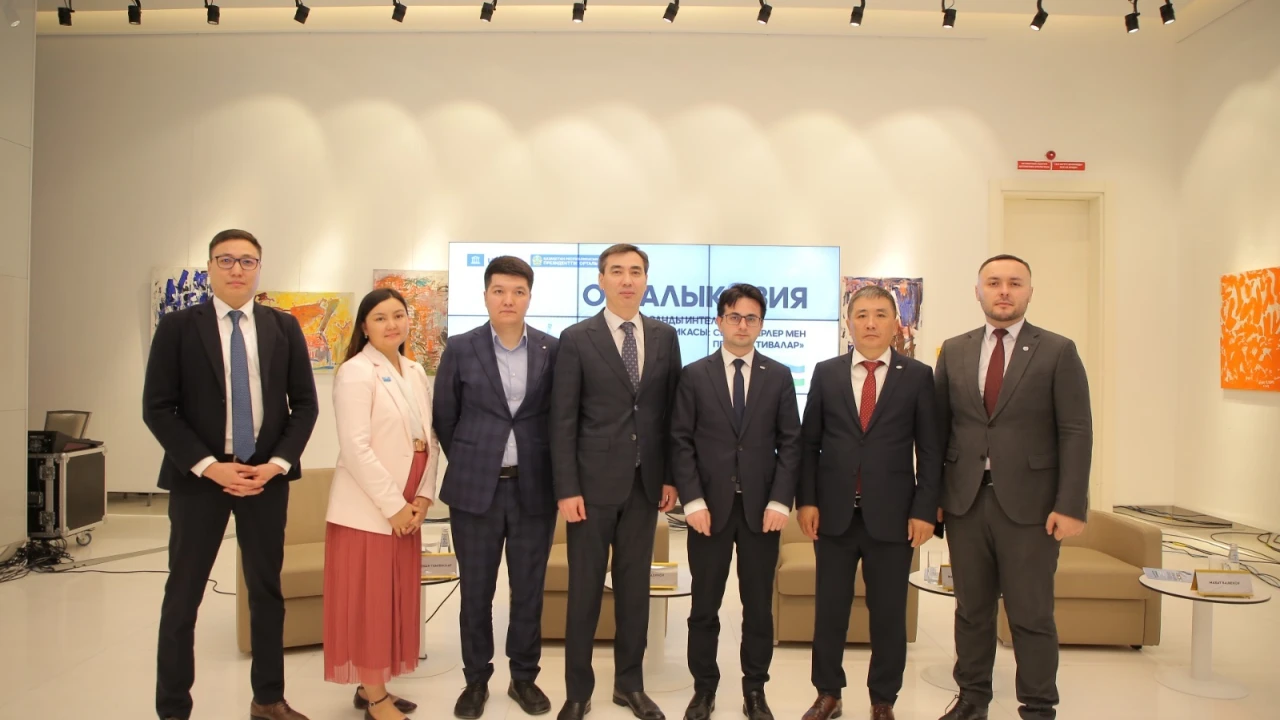
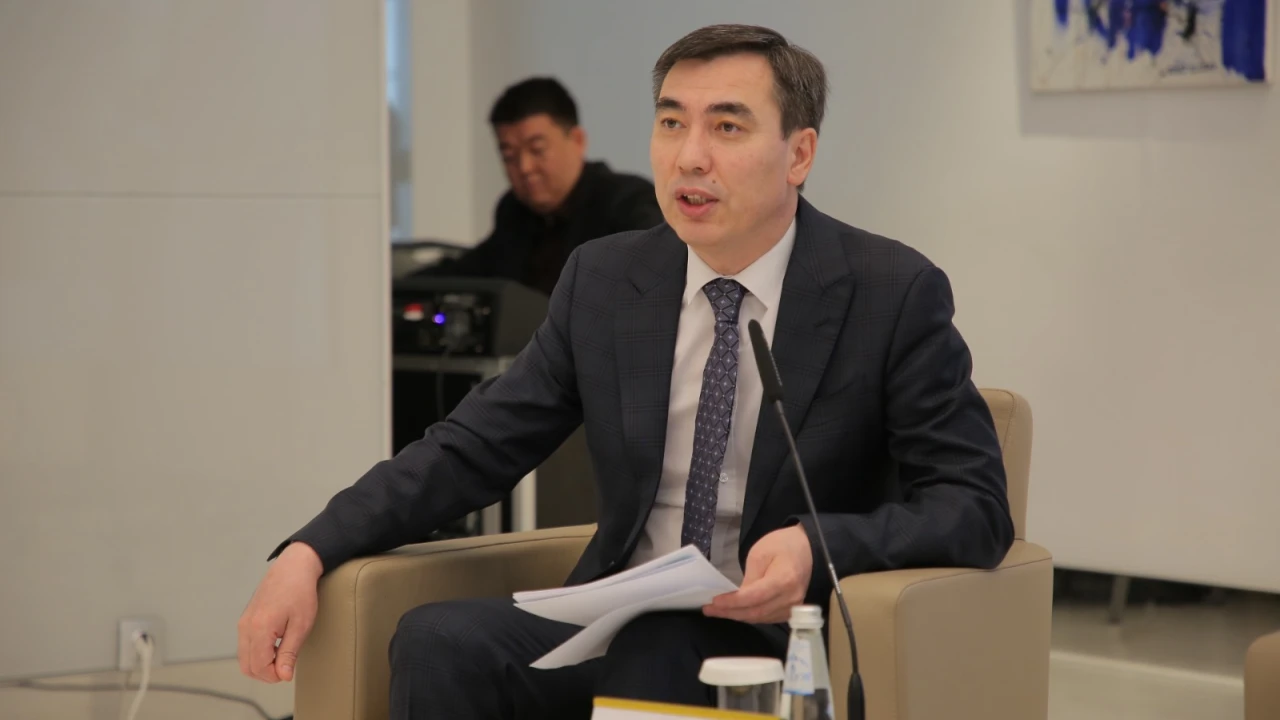
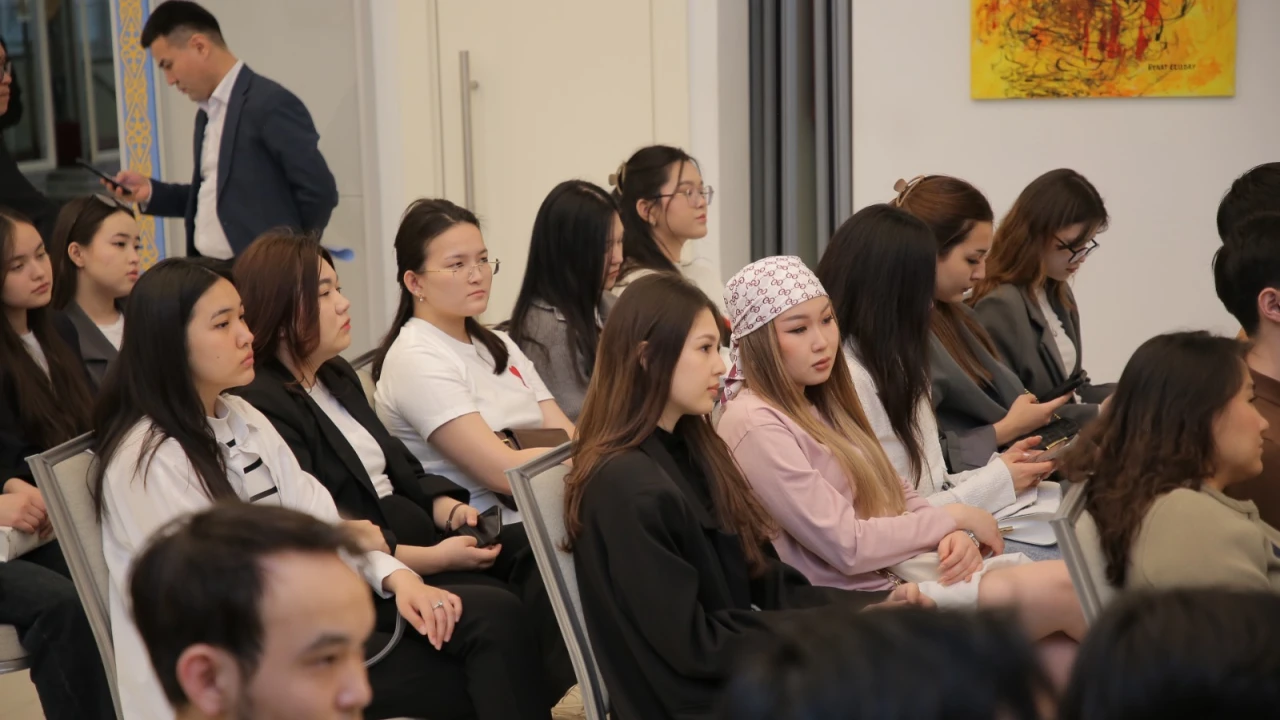
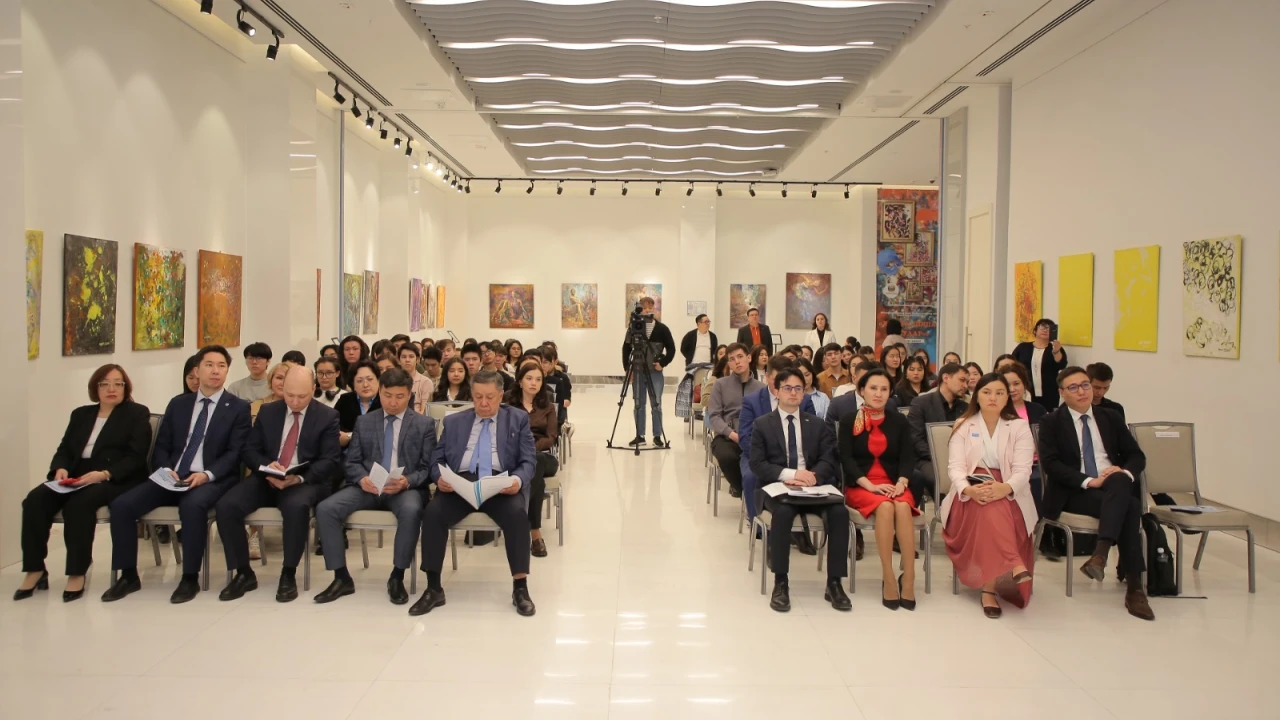
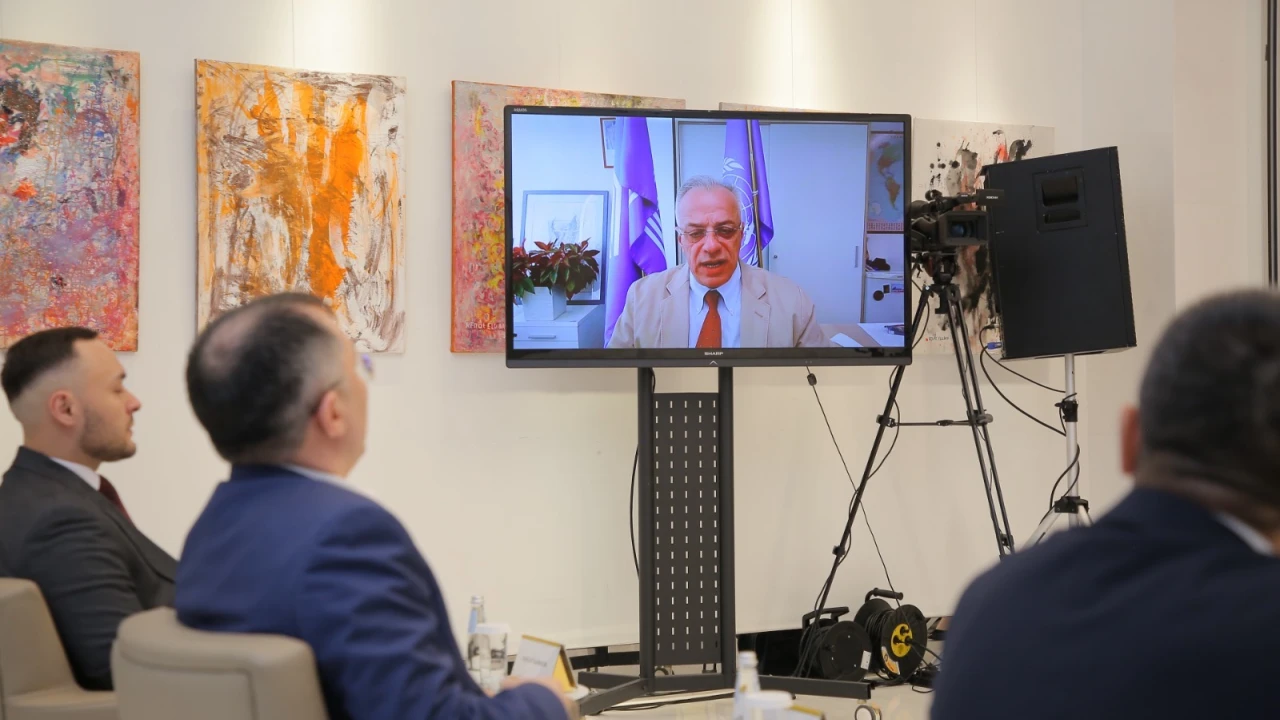
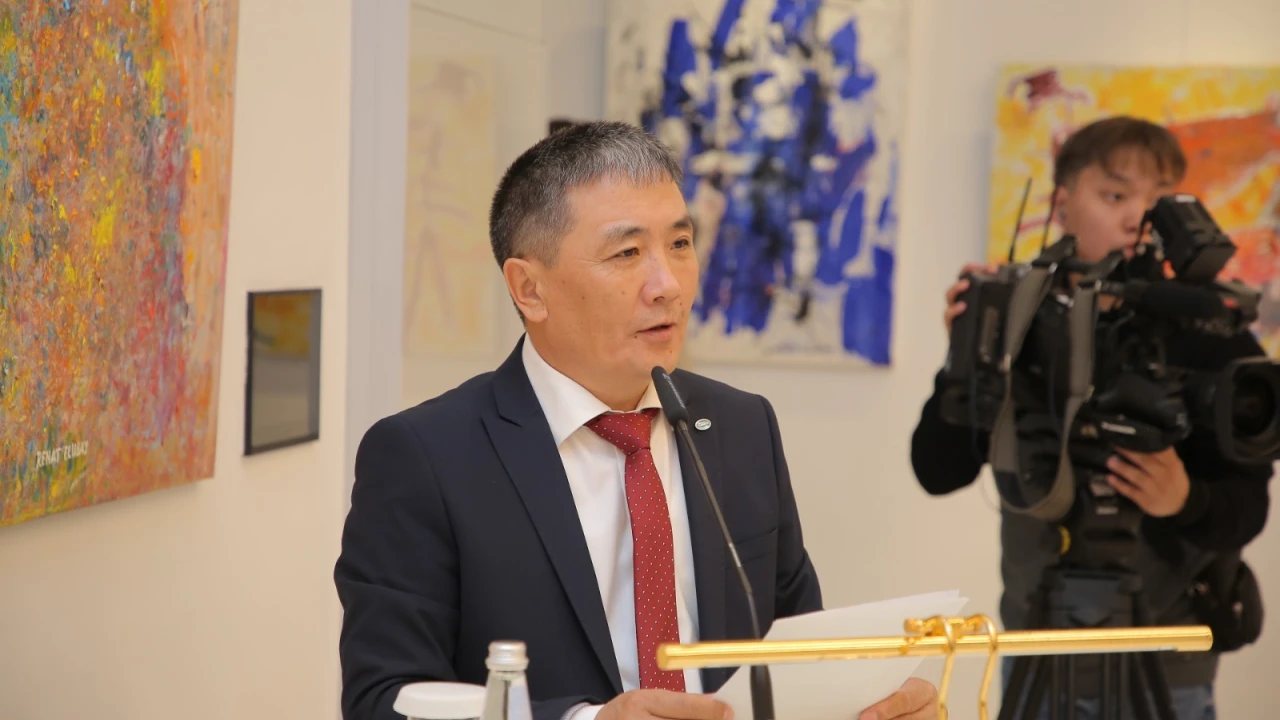
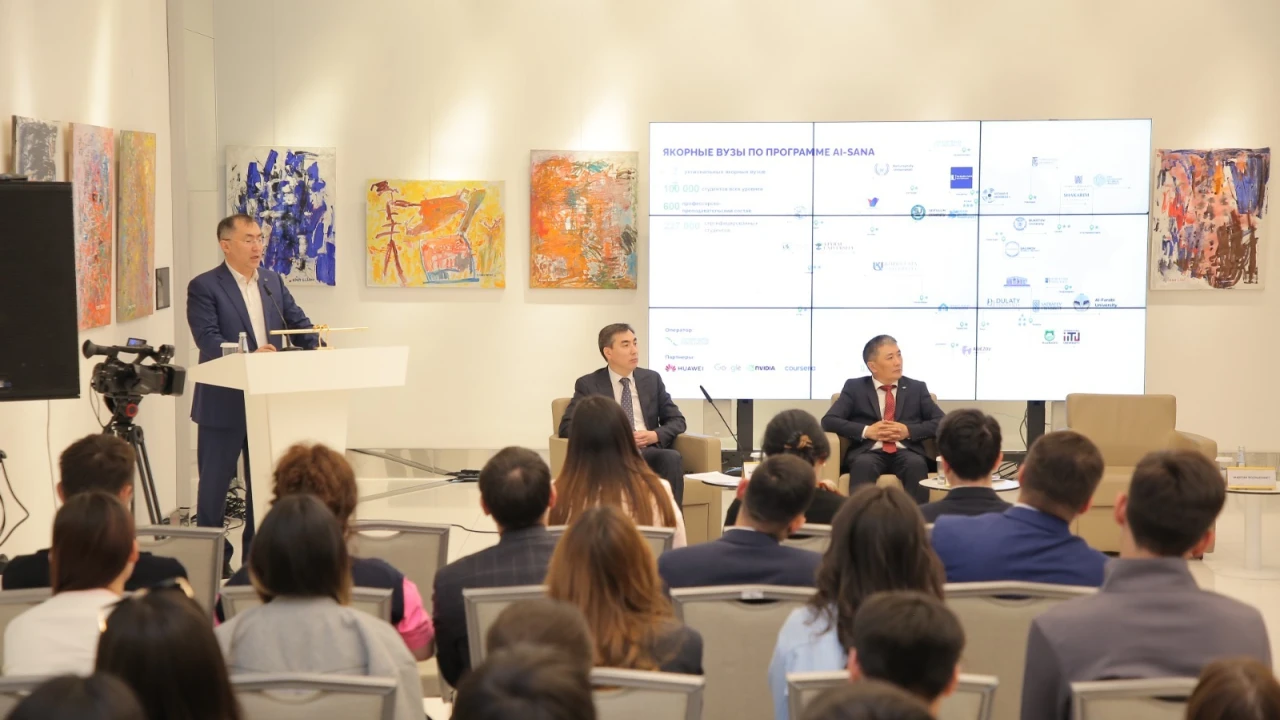
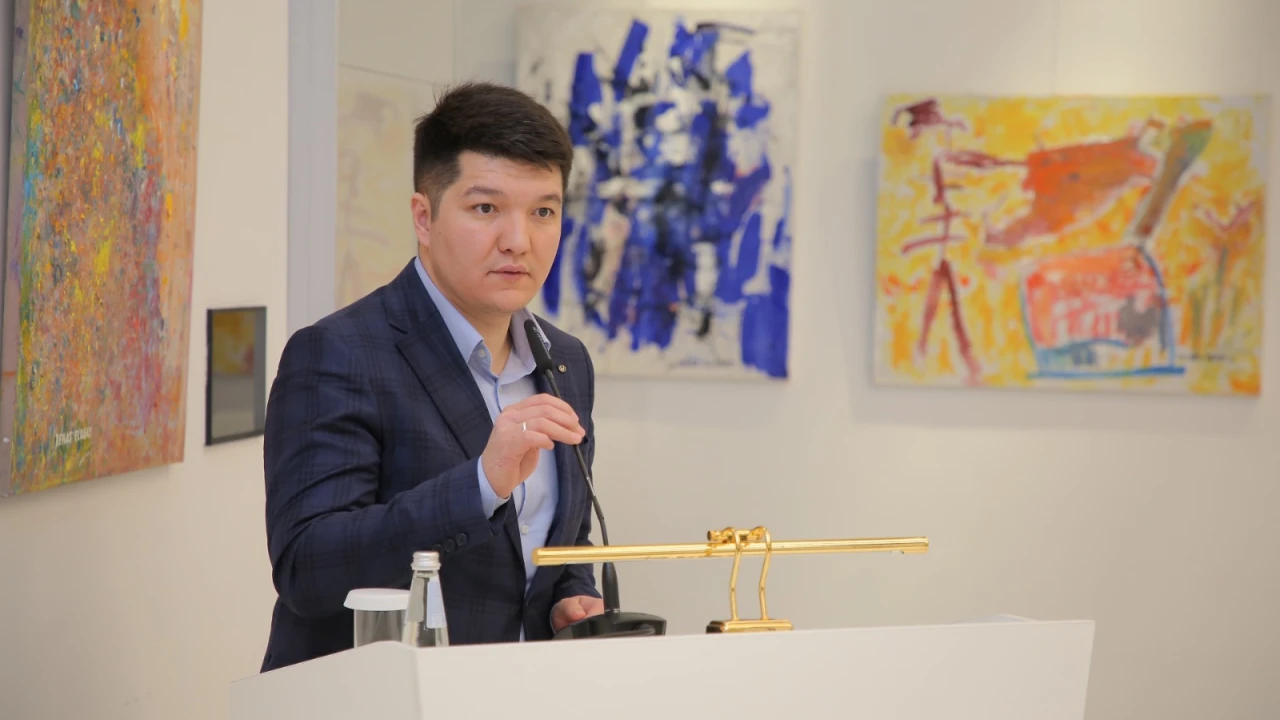
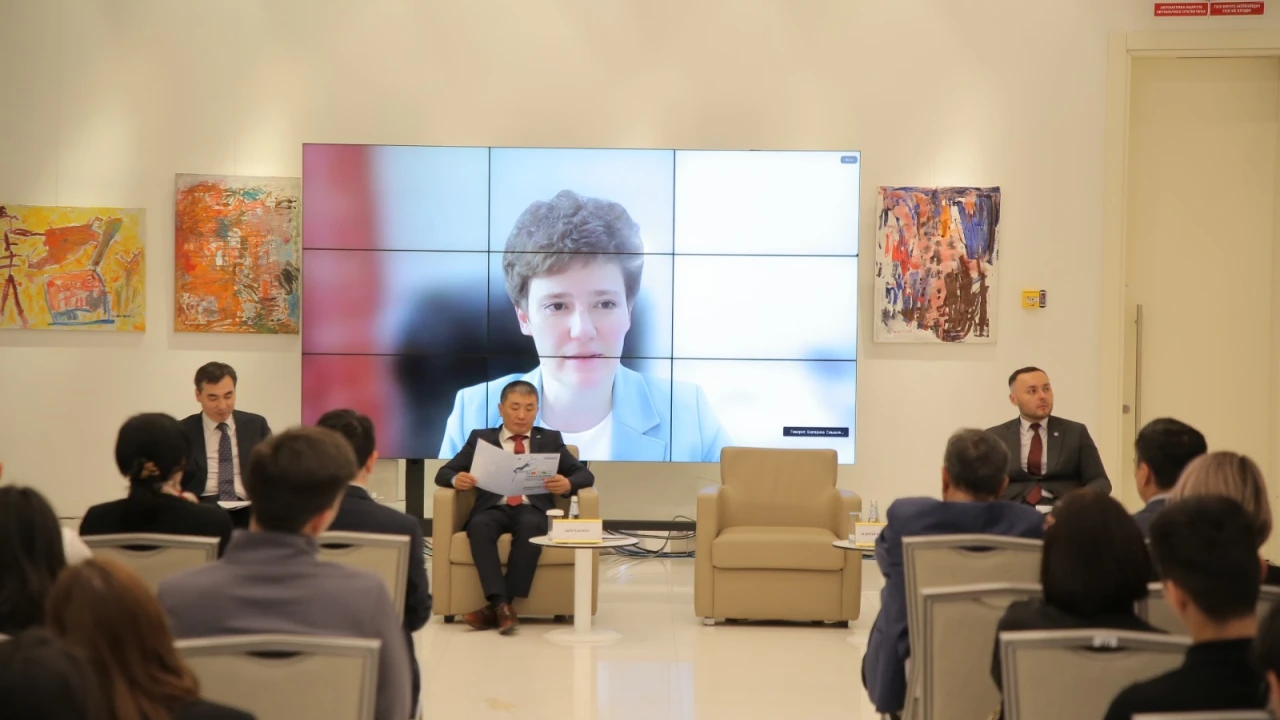
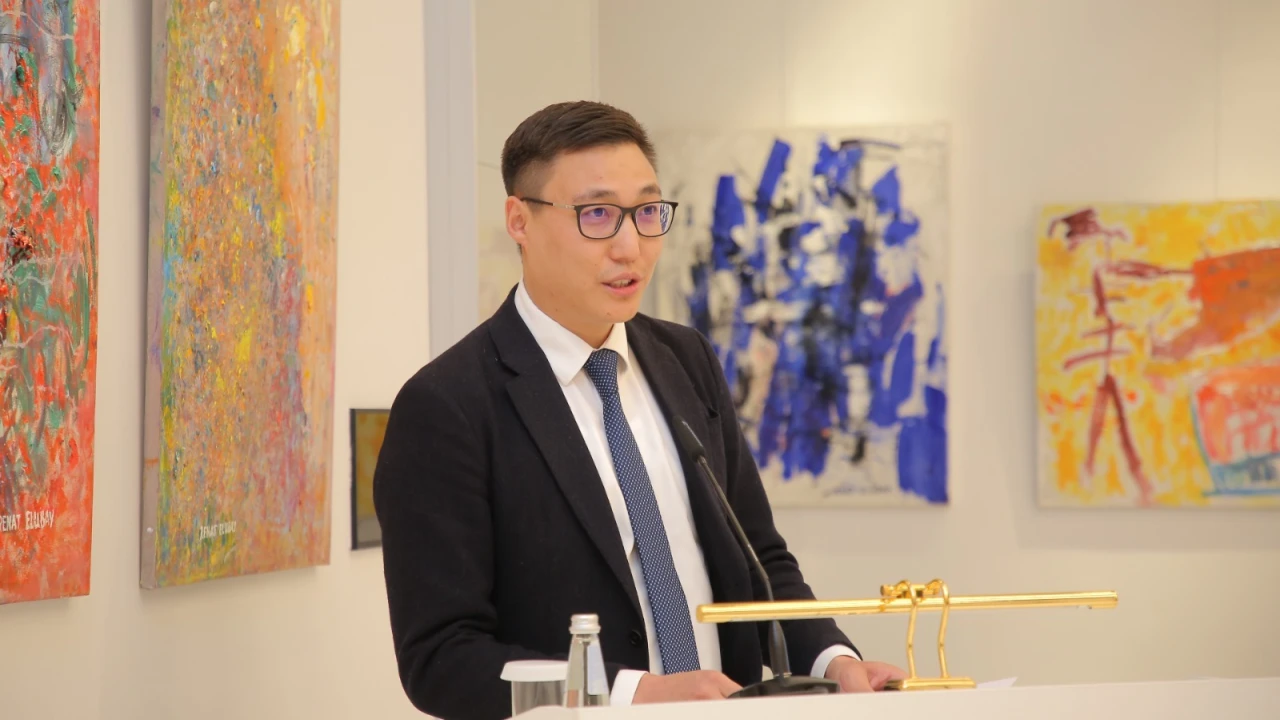
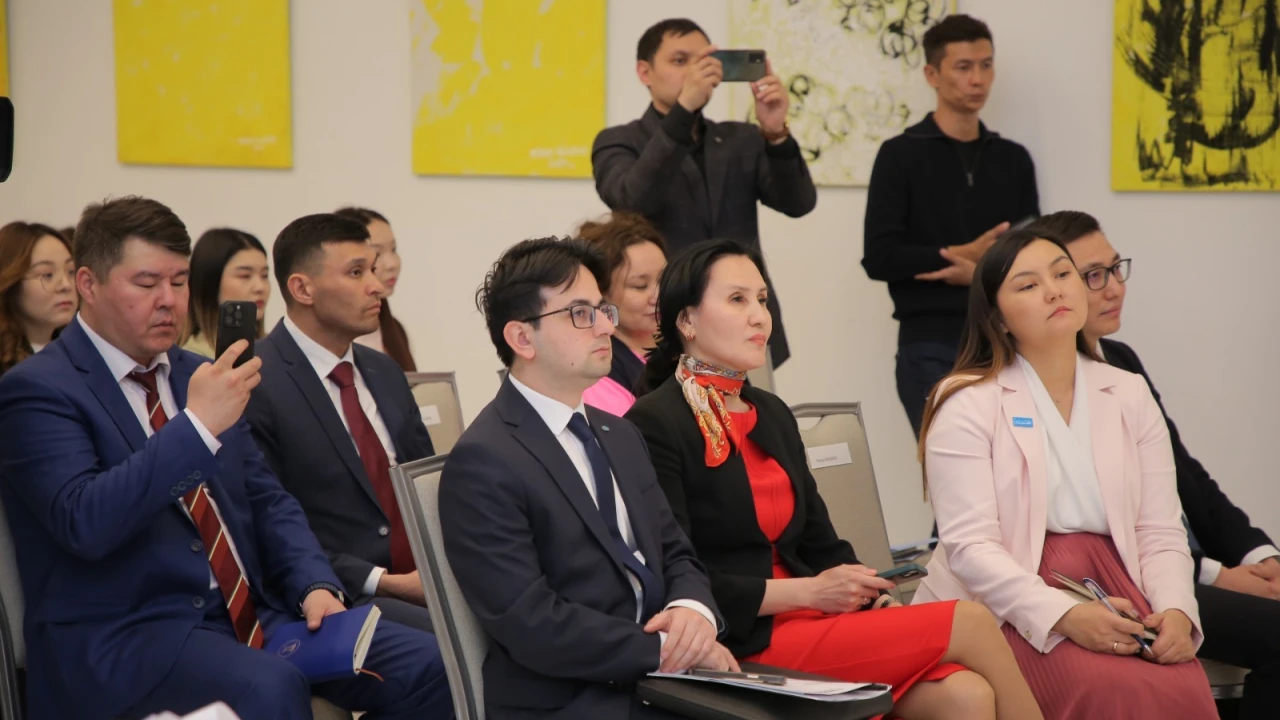
An international conference titled “Central Asia and the Global Ethics of Artificial Intelligence: Challenges and Prospects” took place at the Presidential Center of the DPA RK. The Presidential Center of Kazakhstan and the UNESCO Regional Office in Almaty jointly organised the event.
The conference brought together around 150 online and in person participants, including government and public figures, representatives of international organizations, scientists, AI researchers, developers, and engineers.
“AI is now everywhere — in industry, business, banking, government, science, education, medicine, and finance. It’s become a part of daily life. Today, there are hardly any people who have not used or at least heard of AI tools such as ChatGPT, Claude, Gemini, or LLaMA. Unsurprisingly, global powers and multinational corporations such as Google, Meta, Baidu, and Alibaba have joined the international race to develop AI technologies. Kazakhstan is also actively engaging in these processes. President K.K.Tokayev pays great attention to the development of the sphere of artificial intelligence. On the instructions of the Head of State, the Concept of AI development in Kazakhstan for 2024-2029 has been approved, the Committee for Artificial Intelligence and Innovation Development under the Ministry of Digital Development, Innovation and Aerospace Industry of the Republic of Kazakhstan, the International AI Centre ‘Alem Ai’ have been established, and training programmes for AI specialists have been introduced in universities,” said Bakytzhan Temirbolat, Director of the Presidential Centre of the Republic of Kazakhstan, in his opening remarks.
It is worth noting that the international conference aimed to reflect on the current challenges and opportunities arising from the implementation of AI in Central Asian countries and discuss how global ethical standards—particularly UNESCO’s Recommendation on the Ethics of Artificial Intelligence—can be adapted to the regional context. A special focus was placed on the importance of an inclusive approach that ensures the involvement of youth, women, vulnerable groups, and other stakeholders in shaping a fair and equitable digital environment.
The event also contributed to strengthening dialogue and mutual understanding between various sectors and countries of the region ahead of the Third Global Forum on AI Ethics, which will be held in Bangkok.
“We are gathered here to discuss one of the most profound transformations of our time—the rapid development of artificial intelligence. AI is reshaping societies around the world, including in Central Asia. From public administration to education, from healthcare to scientific research, artificial intelligence presents tremendous opportunities, but it also raises new challenges—challenges that must be approached with the utmost caution and in a spirit of shared responsibility.
In this context, the social and human sciences—at the heart of UNESCO’s mission—play a crucial role. The ethical, legal, and societal dimensions of AI development must keep pace with technological progress. Human rights, dignity, and the principle of inclusiveness must remain at the forefront. That is why UNESCO’s 193 Member States adopted the Recommendation on the Ethics of Artificial Intelligence—a historic document establishing universal principles for AI development, including transparency, accountability, fairness, and proper human oversight. Kazakhstan is moving forward confidently in the digital domain, including through the adoption of its national AI development concept and the establishment of initiatives such as Alem.AI, the new International Center for Artificial Intelligence,” said Amir Piric, Director of the UNESCO Regional Office in Almaty and UNESCO Representative in Kazakhstan, Kyrgyzstan, Tajikistan, and Turkmenistan.
According to the speaker, today’s conference is particularly significant as it brings together representatives of government bodies, the scientific community, youth, the private sector, and civil society to exchange experiences and ideas. Such events play a crucial role in adapting global norms to regional realities.
In turn, Saky Sadikov, representative of the Parliament of the Kyrgyz Republic and Deputy Secretary General of the Parliamentary Assembly of Turkic States, focused on the integration of AI in the Central Asian region.
“We live in an era of rapid change. Artificial intelligence is one of the main drivers of this transformation. It is already profoundly impacting public administration, healthcare, education, security, and communications. However, alongside technological advancement come new ethical, legal, and social challenges. Addressing these issues requires a comprehensive approach in which Central Asian countries can and should take an active role.
Over the past decade, Kyrgyzstan, Kazakhstan, Uzbekistan, Tajikistan, and Turkmenistan have all taken steps at various levels toward digital transformation. These steps demonstrate the region's readiness to embrace AI and reap its economic and social benefits. Central Asia can further strengthen its position through regional coordination. Knowledge-sharing, training of specialists, joint scientific research, the establishment of coordinating mechanisms, and harmonization of legislation—all these efforts will enhance the region’s voice in the global dialogue. Ethical, inclusive, and responsible use of AI is key to ensuring a sustainable and secure future not only for our region, but for the entire world,” said Saky Sadykov.
“Today, artificial intelligence has become an integral part of our daily lives. It is already diagnosing diseases, checking school assignments and even selecting music for our children. AI tutors are being actively introduced in Kazakhstan to help children obtain quality knowledge. This could be a promising solution for schools located in remote rural areas.
However, while adults are generally capable of critically evaluating technology, children remain one of the most vulnerable groups, often trusting algorithms without being aware of the potential risks. In our country, 70% of children use the internet daily, and every third child has experienced cyberbullying. School chatbots are widely used, yet there are no guarantees for protecting personal data.
Therefore, the introduction of AI should be guided by the ethical principles adopted by UNICEF, namely: transparency of algorithms - clear decision-making mechanisms, human-centricity - taking into account children's interests at the development stage, practical application - accessible tools for non-technical users, interdisciplinary cooperation - knowledge sharing between sectors, environmental responsibility - minimising carbon footprint.
Technology is never neutral—it reflects the values of its creators. Our task is to embed ethical standards and mechanisms for safeguarding children's rights into the design of AI systems from the outset. Let us work together to build a digital future where technology serves children's best interests,” said Raushan Ibrasheva, UNICEF Kazakhstan’s Head of Child Rights Monitoring and Evaluation Programs.
During the meeting, speeches were also made by the deputy of the Mazhilis of the Parliament of the Republic of Kazakhstan Ekaterina Smyshlyaeva, director of the National Legal Information Center "Adolat" under the Ministry of Justice of the Republic of Uzbekistan Akbar Musayev, deputy chairperson of the Association of Legal Entities "Association for the Development of Artificial Intelligence in Kazakhstan" Anara Tuleubaeva, director of the scientific and innovation center "Artificial Intelligence" Astana IT University, member of the National Council for Science and Technology under the President of the Republic of Kazakhstan Beibit Abdikenov, executive director of the Central Asian Association of Artificial Intelligence Shakhrior Khudoyberdiev, managing director of the Ntel group of companies Olzhas Zhumabayev.
The following results were achieved at the end of the conference:
- Increased awareness of participants on global and regional approaches to AI ethics, including the UNESCO Recommendation and their practical significance for Central Asian countries;
- Strengthening of intersectoral and interstate dialogue promoting sustainable interaction in the field of responsible use of AI;
- stimulating the involvement of youth and civil society in discussions on equitable approaches to digital technologies;
- identifying possible areas of cooperation and discussing steps to launch joint initiatives or projects, including the development of regional guidelines or a roadmap for implementing ethical AI practices.
Thus, the conference became a platform for discussing topical issues related to the development of artificial intelligence and the implementation of ethical principles in various spheres of public life, including public administration, education, healthcare, science and the digital economy.



